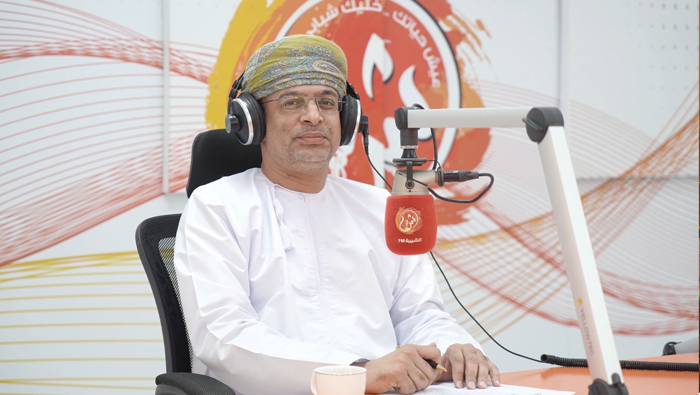

MUSCAT: The practice of hidden trade in the Sultanate of Oman has been going on for the past many years. In a major clampdown on the hidden trade, the Ministry of Commerce, Industry and Investment Promotion (MoCIIP) has announced stringent measures to curb the practice with hefty fines imposed on the guilty companies and traders.
The ministry believes that hidden trade has had a negative impact on the national economy and local markets, which include cases of commercial fraud, impact on labour market regulations, unfair competition with entrepreneurs and small and medium enterprises, and tax evasion, among others.
The hidden trade is seen as enabling an expatriate to practice business and commercial activities while he is not authorised to do so, through the use of licences, commercial registers, and approvals issued to a person - be it a citizen or his company.
In his remarks to Shabiba radio, Mubarak bin Mohammed Al Dohani, Director General of Commerce at the Ministry of Commerce, Industry and Investment Promotion, said: “We found out that there are many commercial activities owned by Omani citizens but managed completely by expatriates.
“This practice of hidden trade is what we are keen to stop. The practice begins when an expatriate persuades a citizen to open a commercial register in his name. Once it is done, the expatriate takes over the payment of all fees and taxes.”
The Ministry of Commerce, Industry and Investment Promotion issued a Ministerial Resolution No. (412/2023) for combating hidden trade in cooperation with a number of government agencies in the Sultanate of Oman and to minimise its economic and social repercussions on business owners and society.
The decision will come into force after 90 days from the date of its publication on July 30 in the official gazette.
Al Dohani said: “During the Covid-19 pandemic, many faulty commercial activities that could be termed “hidden trade” were exposed as many expats left Oman, leaving behind loss-making commercial activities for citizens to take care as they were the owners of the commercial register.”
“There have been many legal cases pending in the courts and with the public prosecution, in particular, unpaid cheques, and other commercial and civil lawsuits.”
He added: “The ministerial decision means that all those involved in the hidden trade must settle their situation through direct supervision and management of the activities of the commercial registry and its commercial establishment, in addition to opening bank accounts.
“The financial obligations and actions of the commercial activity will be followed up through the conclusion of contracts and agreements, which must be done through the owner of the commercial registry itself.”
Al Dohani said that “another solution to settle the situation of the commercial registry drowning in the hidden trade is for the expatriate to own the commercial registry 100 percent based on the foreign capital investment law.”
“In that case, the activities should not be among the commercial activities that are prohibited to be practiced by foreigners, in order to avoid the accumulations and obligations of the establishment, which in most cases, the owner of the commercial registry is unaware,” he added.
He explained that “in hidden trade, the revenues of the establishment, its profits, or the proceeds of the contracts are transferred directly or indirectly to a personal account or another account and not to the account of the establishment.”
Al Dohani stressed that the ministerial decision indicated in one of the articles that every person who comes to know of any person’s conduct of hidden trade must inform the ministry immediately.
He said: “There is a role for the community to be a partner with the ministry in the process of monitoring commercial establishments and reporting activities that may be within the covert trade through the MoCIIP’s communications centre and through ministry’s other means of communications on electronic platforms.”
“This decision should reach all segments of society, and raise awareness in several languages and spread it on many media,” he added.
Al Dohani said that the law made it clear that the ministry may, when violating the provisions of this decision, impose one of the penalties on the erring individuals and companies, such as striking off the activity from the commercial register, or an administrative fine of OMR 5,000, or an administrative fine of OMR10,000 in case of committing the violation for the second time, with the suspension of the activity for a period of three months or an administrative fine of OMR 15,000.
When the violation is repeated for the second time, the activity will be suspended for 3 months and a fine of OMR10,000, and the company will be jointly responsible for fulfilling the penalties imposed if the violation was committed by one of his employees in the name of the company for his benefit.
He said that the ministry may mitigate or exempt the penalties stipulated in this decision if such action is reported, and this applies to all commercial, industrial, professional, craft, tourism or other economic activities.